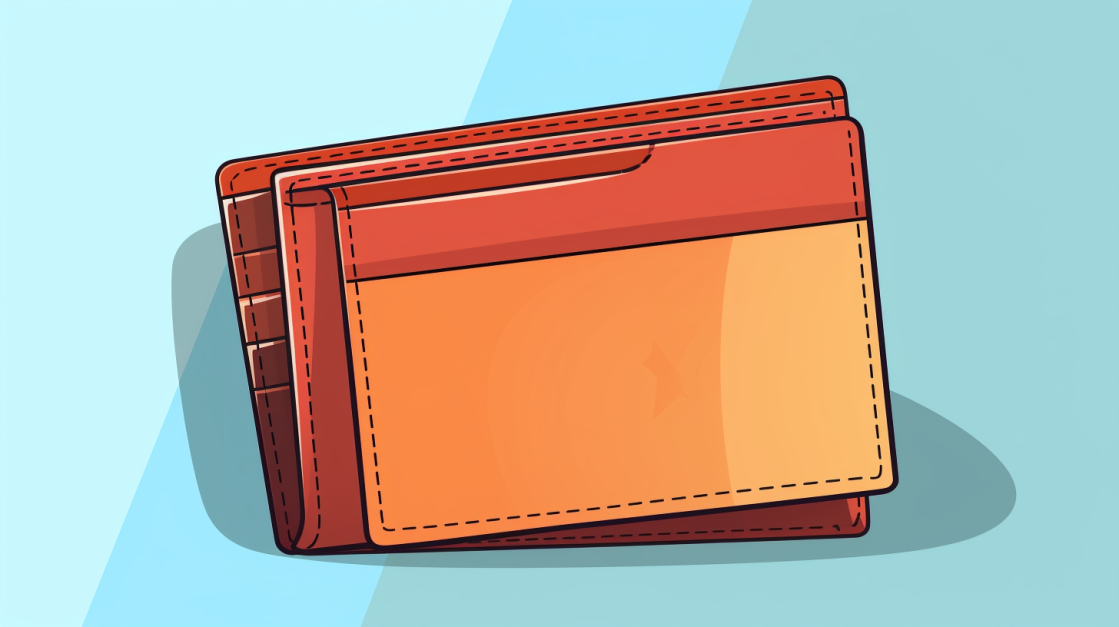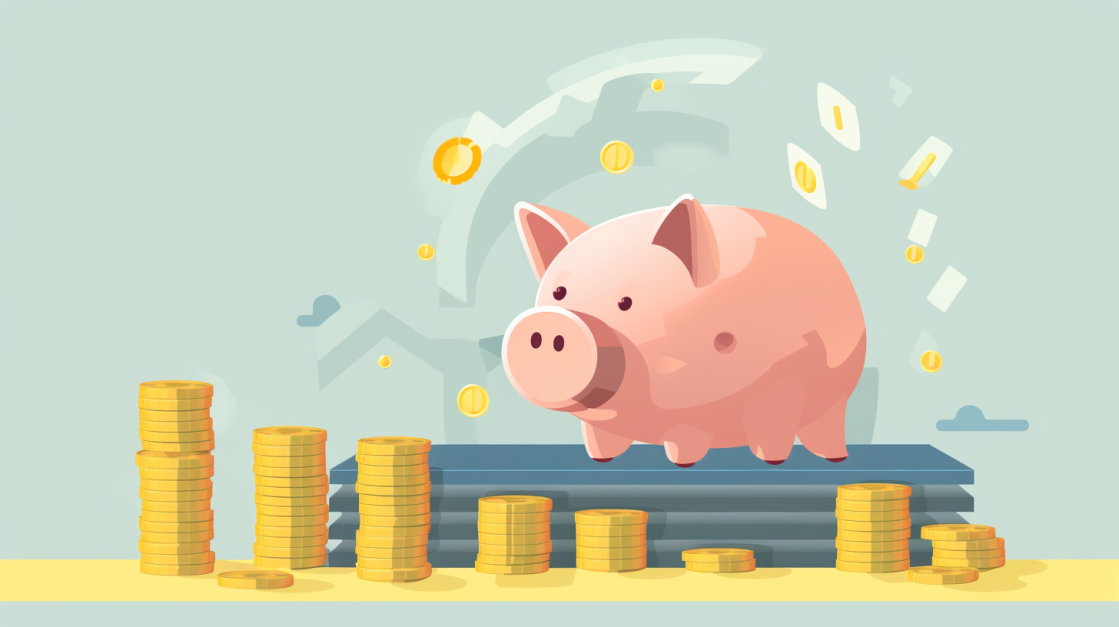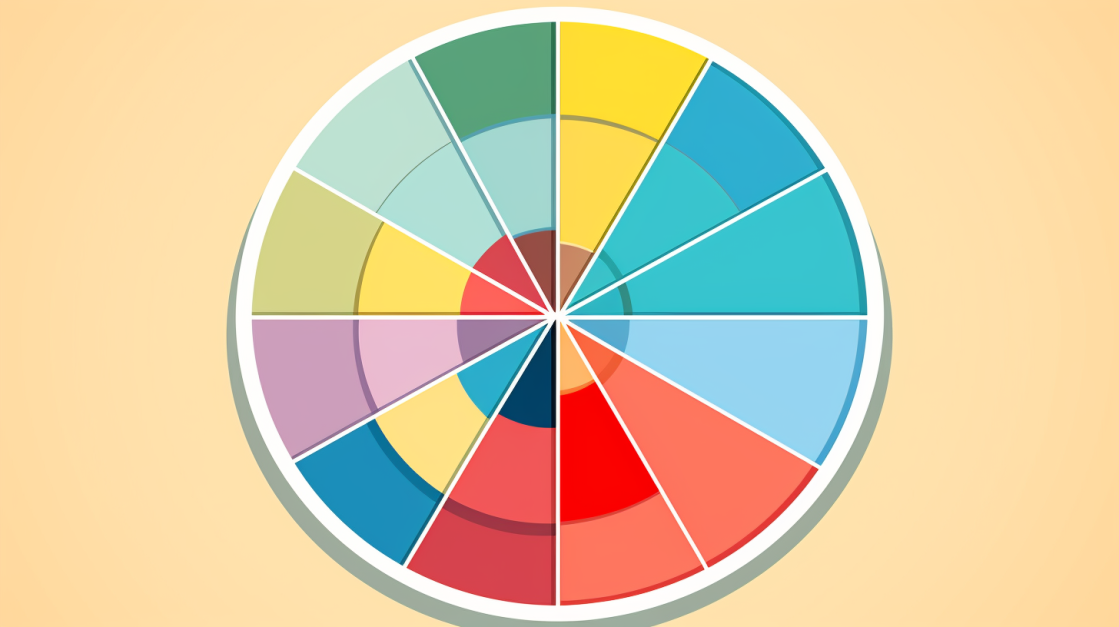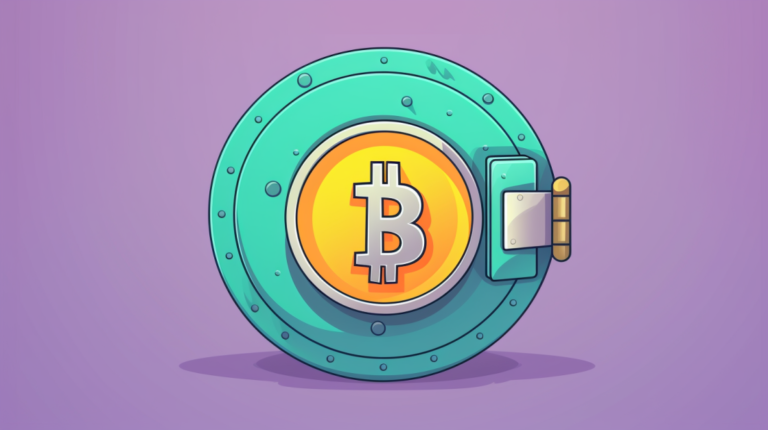How to Start Investing with Little Money

Has that nagging thought, “Oh, I’d love to dive into investing, but there’s hardly a penny left in my pocket,” ever shadowed your mind? Trust me, you’re in good company. This predicament was once an unwelcome guest on my doorstep too.
However, believe it or not – it is absolutely possible to metamorphose even the tiniest bit of savings into mighty investment soldiers. In this post, we’ll map out clever strategies that can arm your money for battle and help turn your humble nest egg into a fortress of wealth.
Sounds like some nifty financial wizardry? Buckle up — let’s hop right in!
Key Takeaways
- You can start investing with small amounts of money.
- Putting some cash in a 401(k) or opening an IRA help make your funds grow.
- The Cookie Jar Approach encourages regular saving for later investments.
- Rely on robo-advisors to manage little-money investments wisely.
- Buying shares, exploring real estate, and mutual funds are smart ways for investors starting out with less capital.
- Setting clear goals guides your investment plan well.
- Falling into common traps like not paying high – interest debt first could harm earnings from investings.
The Importance of Investing
Investing is like a key to a treasure chest. It can help you make your money work for you, not just sit in the bank. If you keep all your cash in a simple savings account, it could be losing value.
This happens because of the cost of living going up and called inflation.
Imagine having 10 balloons today but they only count as 9 tomorrow! That’s how the money feels when there’s inflation. On top of this, most banks give very low interest on our saved money which cannot match up with high inflation rates.
But wait – there is good news too! Investing helps us fight this problem by growing our funds over time at an average rate that’s higher than what we get from savings accounts or lose due to rising costs (inflation).
When to Start Investing

You don’t need a lot of money to start investing. The best time to get going is as early as you can! For sure, the more time your money has to grow, the better off you’ll be when it’s time for retirement.
Even if you only have small amounts of cash available now, know that online platforms open doors for little-money investors like us. As beginners in investment, we learn when we do it regularly – no matter how small our contributions are! But before diving in headfirst into investments, always pay high-interest debts first.
I wish someone told me earlier – but having an outstanding debt with high interest rates will eat away any profits from investings quickly!
Initial Steps in Investing with Little Money
Taking the plunge into investing doesn’t have to be scary, even if you’re starting small. From utilizing your employer’s 401(k) and opening a basic Individual Retirement Account (IRA), to tapping into the wonders of technology with robo-advisors or employing the good old ‘cookie jar’ method – there are plentiful ways for beginners to start making their money work harder.
Discover these easy strategies that could kickstart your investment journey, regardless of how little you may hold right now in our upcoming read!
The Cookie Jar Approach
The Cookie Jar Approach is a simple way to start investing. It’s all about saving small amounts of money regularly. Every little bit helps, and it adds up over time. Then, you can move that money into investments.
You don’t need a lot of cash to do this! This approach makes investing feel less scary because you’re building the habit slowly and learning as you go along. Plus, getting started early means your money will have more time to grow thanks to compound interest.
In short, The Cookie Jar Approach puts the power in your hands – even if they’re holding onto just a few spare coins for now!
Enrolling in a 401(k)
A 401(k) is a smart way to start your journey with little money. When you put cash into this plan, it grows over time, and you don’t pay any tax until you take it out at retirement.
Best of all, many bosses match what their workers save in a 401(k), so that’s like free dollars for your future! It’s not too hard to set up. You can even start by saving just five bucks from each paycheck.
Your tiny bits of savings will pile up before long and make a big sum for later on!
Opening an IRA

Let’s talk about opening an IRA, also known as an Individual Retirement Account. This is a smart move to start investing with small sums of money. An IRA helps grow your funds tax-free, which means you get to keep the full amount when it grows! It’s like planting a seed and watching it bear fruit.
Plus, IRAs give us more choices in what we can invest in. So why wait? Start early and see how your little plant of investment blooms over time!
Using a Robo-advisor
Robo-advisors can be a big help if you want to start investing. They use algorithms which makes the process easy and quick. Robo-advisors like Betterment are great because they do not cost much to use.
You can start with as little as $100, unlike other advisors who require more money at first.
These online platforms also keep your money safe because they mix things up. That means if one investment goes down, others may go up! This is called a diversified portfolio. Another good thing about robo-advisors is that they adjust things for you over time or when needed – this is known as rebalancing.
Robo-advisors provide tools to teach beginners how it all works too! It’s an easy way to put your small amount of cash to work for future benefit.
Strategies for Investing with Little Money
When you’re starting with a limited budget, smart investing strategies matter. Let’s delve into some possibilities like investing in the stock market or giving real estate a shot. Another sound choice is buying mutual funds which pool together lots of individual investments for better purchasing power and diversification, even when your initial investment is small.
These approaches can provide effective growth to your funds without requiring large amounts upfront.
Investing in the Stock Market
Buying stocks in the market is a smart play. It lets your money earn good returns. Plus, there are many online platforms that make it simple to start investing even if you don’t have a lot of cash.
You can pick index funds or mutual funds. Think about getting fractional shares too. These allow you buy a piece of stock without having to pay for an entire share up front.
While buying stocks can bring profit, it also comes with risk levels not everyone’s comfortable with. So before diving headlong into stock trading, define what risks you’re willing and able to take on based on your goals and tolerance level.
Exploring the Real Estate Market
Real estate is more than just buying and selling homes. Dip your toes in the real estate market with little money through Real Estate Investment Trusts or REITs. Investing in a REIT is like buying a tiny slice of a huge building, so you don’t need lots of cash! Try platforms like Fundrise that serve for Real Estate Crowdfunding; it gives part ownership of big properties without being the landlord.
House hacking too may be an option—live in one unit and rent out others to pay off your mortgage over time. This way, you’re earning passive income while investing! It’s an exciting path for future wealth-building using only small amounts now.
Buying Mutual Funds
Mutual funds are a great choice if you have little money to invest. They let many people pool their cash to buy stocks or bonds. This makes it cheaper and easier for each person. A pro manages the fund so you don’t have to pick every stock yourself.
You need to think about things like costs, how well the fund did before, and what it buys before buying a mutual fund. Online platforms now make this process even simpler and more folks can join in! The key is knowing what you want your money to do and how much risk you can handle.
This will guide your choices when picking mutual funds.
Best Investment Strategies for Beginners

Navigating the financial world can be tricky for beginners, but understanding your goals and risk tolerance can lead to fruitful investments. Learn why there’s no one-size-fits-all investment strategy and how diversifying your portfolio based on your unique objectives is key.
Discover the importance of patience in investing with tips from big-name players like Warren Buffett and Dave Ramsey. Stay tuned to learn more about avoiding common beginner mistakes, building a strong investment foundation and weathering market fluctuations confidently.
Understanding Your Goals and Risk Tolerance
It is key to set clear goals before you start investing. Each goal, like buying a car or retiring early, may need different types of investments. Risk tolerance also plays an important role in your investment plan.
If the thought of losing money keeps you up at night, taking on high-risk investments might not be right for you. To protect against big losses, consider safer options that will still help start growing your wealth over time.
Knowing There’s No “Best” Investment for Everyone
Everyone has a unique set of goals and needs. This means different investments work better for different people. Some might find real estate the perfect fit, while others do well with stocks or mutual funds.
Goals, risk level and time frame all play a part in finding your best investment strategy. So don’t go looking for one “best” investment to be the magic answer to all your money needs.
That just doesn’t exist! Instead, explore diverse options until you discover what fits you just right.
Different Goals Require Different Investments
We all have big dreams. Some want a new car, others dream of getting their own house. Each goal needs its own special kind of investment plan. For example, if you want to buy a home in the next five years, your investments should be safe and secure.
U.S. Treasury securities or certificate deposits (CDs) may work best for this.
On the other hand, if you aim to build wealth for the long term like 20 years from now, you can take more risks with your money. You could invest in stocks or gold and precious metals or use apps like Acorns that make investing easy even with just spare change.
Learning Patience in Investing
Investing calls for lots of patience. You don’t just put in money and wait to be rich the next day. It’s a slow process that pays off over time. Just like how plants take their own sweet time to grow, your money too needs time to make more money.
One key fact is that starting early gives you an edge, thanks to compound interest. Even with little cash, investing can help boost your future wealth if you stay patient and let it grow!
Mistakes to Avoid When Investing with Little Money
There are some common errors you need to steer clear of when investing with little money.
- Failing to pay off high – interest debt before investing is a big mistake. This can cancel out any gains you make from your investments.
- Investing without an emergency fund isn’t wise either. You might be forced to sell your assets at a loss if unexpected expenses come up.
- It’s crucial not to panic and sell during market drops due to normal market volatility.
- Jumping into an investment without understanding it is another misstep. Make sure you know your options and how much risk each one carries before you commit any money.
- Trying to find a one-size-fits-all plan is also risky, as every person has unique beliefs and needs in terms of their finances.
Investing on a Small Budget
Even if you’re on a tight budget, investing isn’t out of reach – it’s all about strategic saving, handling your debts wisely and exploring retirement investments. Plus, did you know your tax refund can be an unexpected source for investment funds? Keep reading to discover smart methods to start growing that nest egg!
Automating Savings

Setting up your money to save itself is a smart move. It’s like having a tiny robot do the work for you! This is called automating savings. It means that every time you get paid, some of your money goes straight into savings without you even touching it.
This can help build up your investment pot over time.
Savings apps are tools that can assist with this process. They send part of your paycheck to savings before you spend it all. By doing this all on its own, these apps make saving easy and fast! Plus, with fewer fees, more coins land in your jar instead of being lost along the way.
Handling Debts
Pay off any high-interest debts before you start investing. This step is key because the interest on your debt can eat up all of your investment gains. Your money will work better for you if it’s not being used to pay hefty interest rates.
Making sure all debts are handled makes the path clear for successful investing.
Considering Retirement Investments
Think about retirement plans like a 401(k) or an IRA. These work well when you start young. Your little money grows over time with interest. You add more each year, and that also earns interest.
Many times, your boss will even put in extra money if you do too! It is never too early to think about life after work and the funds needed to lead a comfortable life at that time.
Investing Tax Refunds
Using your tax refund for investing is a smart money move. This extra cash can work for you in the future. You may get less shopping done today, but think of tomorrow’s gain! Instead of buying that new phone or taking a trip, put it into stocks or bonds.
Over time this small sum can turn into so much more due to compound interest. It’s like planting a seed and watching it grow into a tree – patience pays off!
Investing with Limited Funds
Even when funds are limited, opportunities for savvy investing abound. From putting your spare change to work via investment apps like Acorns or Stash, to exploring the world of real estate crowdfunding, you’re not short on options.
High-yield savings accounts and fractional shares can be a great entry point too and don’t forget about Certificates Of Deposit (CDs) which offer tangible rewards for patient investors.
Investing Spare Change with Apps
Apps like Acorns and Stash make investing easy. They do this by taking the little bits of money you don’t use when you buy something, and putting it to work. This is “rounding up”.
For example, if you spend $4.50 on a coffee, they round it up to $5. The fifty cents goes into your investment account. Other apps like Robinhood are good too. These apps let you start with as low as $100! So using these can get more out of your cash in small ways that add up over time.
Real Estate Crowdfunding
You can make money with real estate crowdfunding. This way to invest lets people put a small amount of money into big buildings for sale or rent. Online tools let everyone join in, even if they don’t have much cash.
For about $500, you’re part owner of a property and share the profits when it’s sold or rented out. It adds something unique to your other investments too!
High Yield Savings Accounts
High yield savings accounts are a safe bet for your money. They have higher interest rates than normal bank accounts. This means you earn more over time. Keeping your money in these types of accounts can help it grow and stop inflation from chipping away at it.
Online tools make this method easy and fast, even if you only have a small amount to invest. So, getting one started is not hard work at all! That’s why many folks with limited funds pick high yield savings accounts as their go-to choice for investing.
Fractional Shares

Do you want a piece of a big company like Apple or Tesla but don’t have huge funds? Fractional shares can be your best friend here. These let you buy less than one whole share in these companies.
You need very little money to start buying them.
Platforms such as Robinhood and Public are the places for this. They offer commission-free trading of fractional shares. This means no more high fees each time we buy or sell! We get all the gains if our chosen company grows.
So, buying fractional shares is an easy way to make our small savings stack up over time.
Certificates Of Deposit (CDs)
CDs are a nice way to save money. You give cash to the bank for some time. In return, the bank promises to pay you more money later. The longer you leave your money with them, the more they pay back! These are safe because the FDIC insures them, which means that even if something happens to the bank, your CD’s value is covered up to $250k per person in each bank.
But if you take out your money before agreed time(early withdrawal), you might lose part of it as penalties could occur.
The Importance of Tracking Your Investments
Keeping track of your investments is very important. Here’s why:.
– Tracking helps you spot the impact of inflation on your money. With a record 40-year high in place, we need to stay alert.
– When investments grow, they can beat out any losses from inflation.
– It maintains your purchasing power and keeps you from losing money left idle.
– Seeing how well stocks or funds perform offers clues on what to do next. Good results push us to put more cash in one area than another.
– Spikes or dips show when it’s time to sell or buy more shares.
– You may see patterns by keeping records over the long term. These trends help plan for future decisions about where best to put our hard earned dollars!
– Keeping an eye on things will prompt us if we need advice from experts. If an investment is not doing well, we may talk with a financial planner for help!
In the end, knowing how our little bits of money are working out there in the big world makes us smarter and better investors – all without having a tonne of starting cash!
Can Dividend Investing Be a Good Option for Someone with Little Money to Start Investing?
Dividend investing for income can indeed be a good option for individuals with limited funds to start investing. By purchasing stocks in companies that regularly distribute dividends, even a minimal investment can generate a steady stream of passive income. Dividend-paying stocks, combined with the power of compounding, provide an opportunity for growth and potentially higher returns over time. So, even with little money, dividend investing can offer a promising path to building wealth.
Frequently Asked Questions

In my journey through investing, I’ve come across a lot of questions that people commonly ask. Here’s a quick list of frequent queries about starting to invest with little money:
1. Is it even feasible to start investing with little money?
Yes, it absolutely is. Several online platforms and investment options have made investing accessible for everyone, regardless of their initial investment capacity.
2. When should I start investing?
The earlier you start investing, the better. Starting early allows you to take advantage of compound interest, potentially leading to greater wealth accumulation and the possibility of an earlier retirement.
3. How does the ‘cookie jar’ approach work?
The ‘cookie jar’ approach refers to saving a small amount regularly until you accumulate enough to invest. It’s a simple yet effective way to develop a saving habit and start your investment journey.
4. What are some of the best investment options for beginners?
A few recommended starting points include enrolling in a 401(k), opening an IRA, or using a robo-advisor. These can help you learn about investing while earning decent returns, which beats leaving your money in a bank account.
5. Should I pay off debt before investing?
It’s generally a good idea to pay off high-interest debt before investing. The potential returns from investing may not be enough to offset the high cost of your debt.
6. How can I invest in real estate with little money?
There are options such as real estate crowdfunding platforms that allow you to invest with a small amount of money.
7. Are there any apps for investing spare change?
Yes, there are several apps available that round up your purchases to the nearest dollar and invest that change.
8. What’s the purpose of a high-yield savings account?
A high-yield savings account offers higher interest rates than a regular savings account. It’s a good option for people who want to grow their money while keeping it accessible.
9. How do I track my investments?
It’s essential to regularly monitor your investments to evaluate their performance and make necessary adjustments. You can use various financial platforms and apps for this purpose.
10. What are fractional shares?
Fractional shares allow you to buy a portion of a share rather than a whole one. This means you can start investing in high-value companies with a smaller amount of money.
11. What are Certificates Of Deposit (CDs)?
CDs are a type of fixed-term savings account that typically offer higher interest rates than regular savings accounts. They’re a low-risk investment option suitable for beginners.
Conclusion
You can start investing today, even with a few dollars. It’s about being smart and steady with your money. Find the best plan that suits you. In the end, what counts is doing something, not how much money you have now.
FAQs
1. How can I start to invest with little money?
You can start investing using platforms for small investments like Acorns App, Ally Invest, or Webull. You can also put your spare change into these apps and let it grow over time.
2. What are some ways to save money for investment?
Saving money is the first step in building wealth. Good saving habits like cutting on consumer debt and proper planning of personal finance will enable you to have extra dollars to invest.
3. Can I use my retirement funds as a way of investing my money?
Yes! One easy way to start investing is through an employer-sponsored retirement plan known as a 401(K) or IRA (Individual Retirement Account). Many employers offer matching contributions which means free money towards your investment habit!
4. Should I seek advice before starting an investment portfolio?
It’s always good to get tips from fee-only financial advisors, certified financial planners, or follow the Best Investing Blogs available online because understanding all aspects of investments helps grow your knowledge which aids in making better choices.
5. Is diversifying my investments important even when I’m starting with little cash?
Definitely! Investment diversification across different areas like real estate by Fundrise Review, stocks via dividend reinvestment plans (DRIPs) help balance risk while opening more doors for compound earnings growth.
6.What are some other types of investments available even if I only have $1000?
There are various options you could consider such as direct lending through peer-to-peer lending schemes; buying individual stock shares, gold or other precious metals; engaging in cryptocurrency trades etc.






